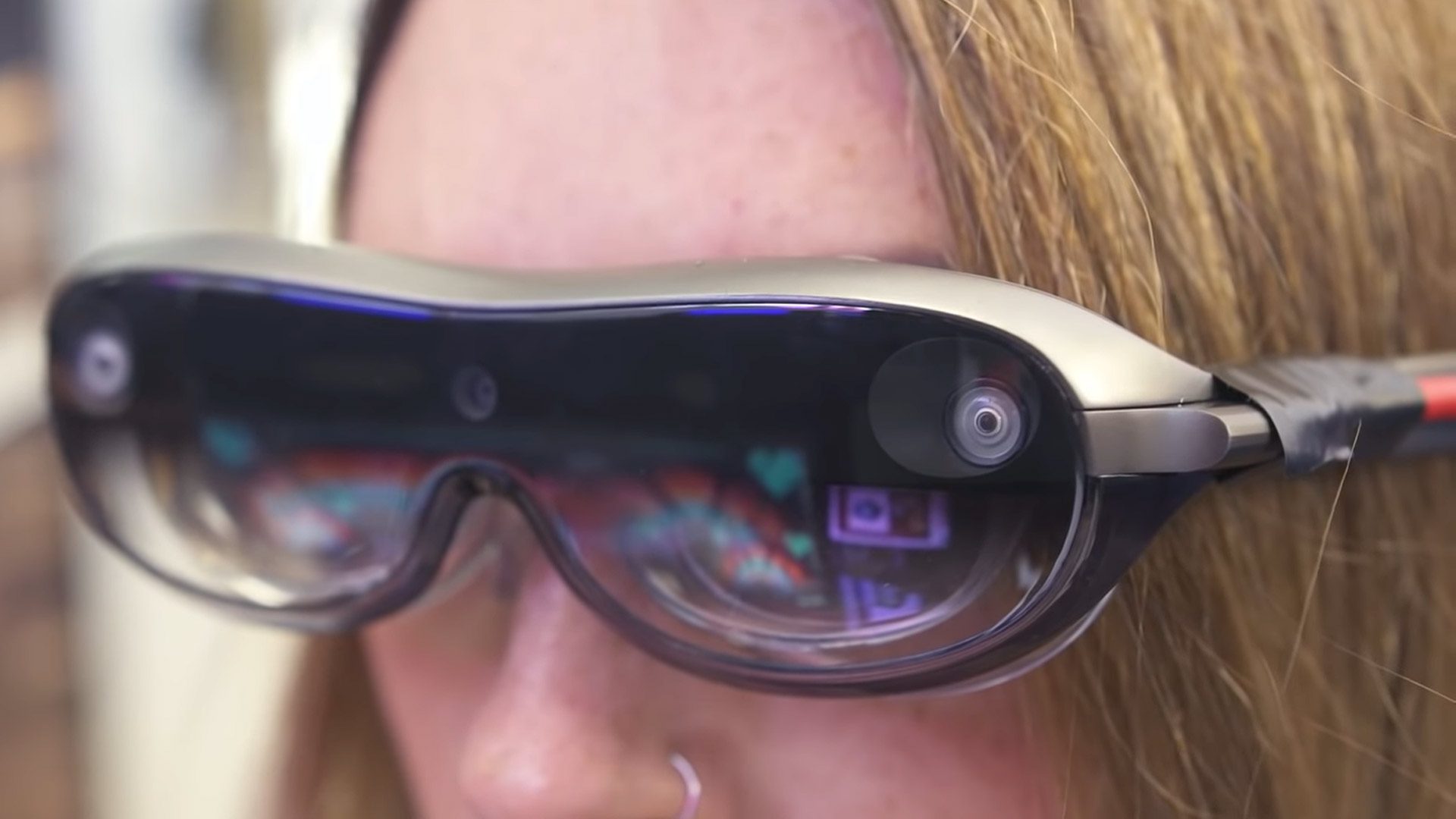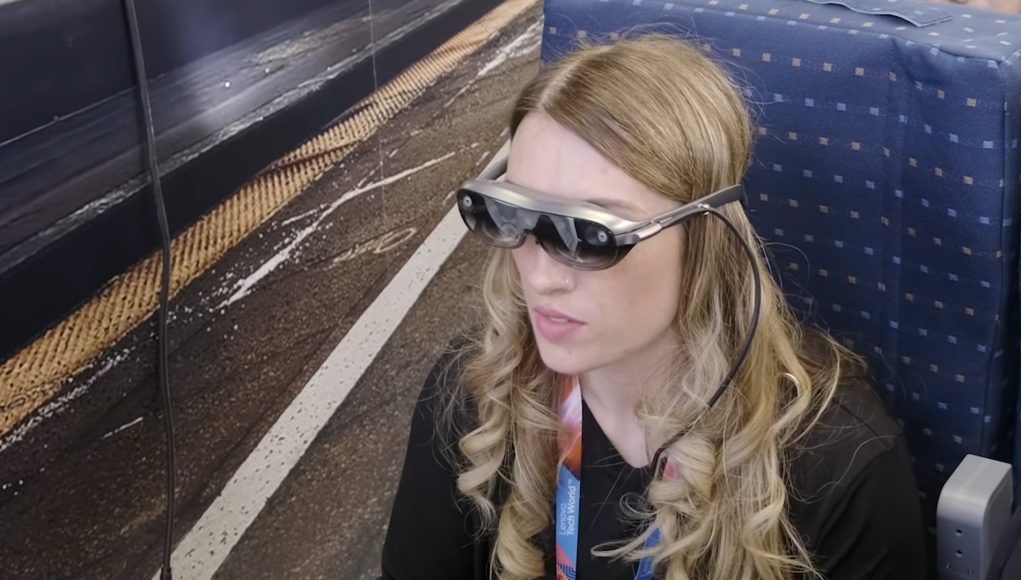At Lenovo’s Tech World conference in Beijing, the Chinese tech giant unveiled a new AR headset prototype that aims to appeal to business travelers on-the-go.
Officially called the Lenovo AR Concept Glasses, the headset features a relatively small and sleek profile, no doubt in part because the headset connects to a PC via cable, meaning it likely doesn’t hold an on-board SoC or built-in battery like Microsoft’s standalone AR headset HoloLens. The news was first reported by German publication MIXED.
The concept AR glasses are said to let users simulate multiple monitors, with the added benefit of user privacy so that you can work in a public space, like on a train, without having to worry about someone looking over your shoulder.
Although it’s uncertain if Lenovo intend to actually produce the AR glasses, the company did say the virtual monitor use case is “just one of the many features coming soon on the new Lenovo AR glasses,” which could imply the company is looking to flesh out its capabilities in effort to launch the device to business-savvy travelers.
As it is now, the glasses appear to feature three sensors and what could be ‘bird bath’ style optics, much like the Nreal headset shown off at CES 2019 in January. This is however conjecture at this point, as the company hasn’t publicly specified any of the headset’s specs.

Most recently, Lenovo launched its ThinkReality A6 HMD back in May, an AR headset, that like HoloLens, is targeting business applications.
A few months later, the company announced a refresh of Lenovo Mirage AR, its consumer-focused AR headset. Originally launched in 2018 alongside its sole title, Star Wars: Jedi Challenges (2018), the headset is now said to arrive with 6DOF controllers and a new AR game, MARVEL Dimension of Heroes.







